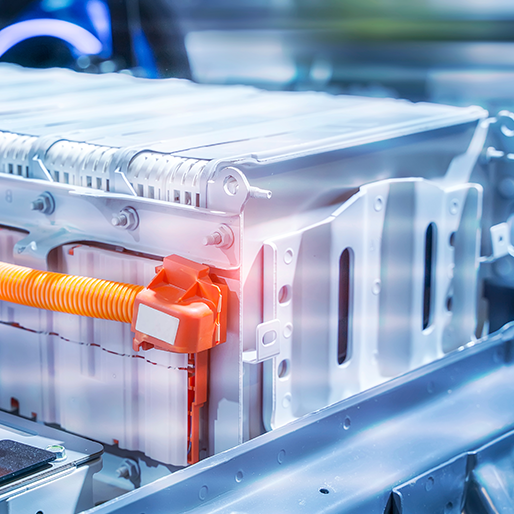Modified on
The Importance of Battery Recycling: Promoting Sustainable Energy Storage

Skill-Lync

Renewable energy is gaining momentum as a viable alternative to fossil fuels, and the importance of efficient and sustainable energy storage cannot be overstated. Batteries play a crucial role in this regard, serving as the backbone of energy storage systems that power everything from electric vehicles to solar installations. And as the demand for batteries continues to rise, so does the need for proper battery recycling.
Battery recycling has emerged as a critical solution to mitigate the environmental impact associated with the disposal of used batteries. These power-packed devices, often containing heavy metals and toxic chemicals, can pose significant risks if not handled and disposed of correctly. By embracing battery recycling, we can unlock many benefits to a more sustainable and eco-friendly future.
This blog will delve into the importance of battery recycling, exploring its environmental benefits, resource conservation, and promoting a circular economy. We will examine the challenges faced by the industry, innovative recycling technologies, and the role individuals and businesses can play in fostering responsible battery disposal.
Let's dive in and uncover the key aspects of battery recycling for a greener and more sustainable energy landscape.
What is the Importance of Battery Recycling?
Battery recycling holds significant importance for several reasons:
- Environmental Conservation: Batteries, particularly those used in electronic devices and electric vehicles, contain hazardous materials such as lead, cadmium, and mercury. Improper disposal of batteries can lead to these toxic substances' leaching into soil and water, posing severe environmental risks. Recycling batteries ensure the safe and responsible management of these hazardous materials, preventing pollution and protecting ecosystems.
- Resource Conservation: Batteries consist of valuable resources, including metals like lithium, cobalt, and nickel. These finite resources can be recovered and reused by recycling batteries, reducing the need for extensive mining and extraction. Recycling conserves natural resources and reduces the energy consumption and greenhouse gas emissions associated with the extraction and processing of raw materials.
- Waste Reduction: Battery recycling helps in minimizing the amount of electronic waste that ends up in landfills. As the demand for batteries grows, recycling provides a sustainable solution for managing the increasing volume of used batteries. By diverting batteries from landfills, we can mitigate the potential environmental and health hazards linked to their improper disposal.
- Circular Economy: Battery recycling plays a crucial role in establishing a circular economy by closing the loop on the battery life cycle. Instead of a linear "take-make-dispose" model, recycling allows for the recovery of valuable materials, which can be used to manufacture new batteries. This promotes a sustainable and resource-efficient approach, reducing dependency on virgin materials and minimizing waste generation.
Battery Industry – Challenges, Solutions, and the Way Forward

The battery industry faces several challenges regarding responsible disposal and recycling. These challenges include:
- Lack of Awareness and Infrastructure: Many individuals and businesses are unaware of the importance of battery recycling and the potential environmental hazards associated with improper disposal. Insufficient infrastructure and collection systems for battery recycling further compound the problem.
- Safety Concerns: Batteries contain hazardous materials that can be dangerous if improperly handled. Batteries' safe handling and disposal require specialised knowledge, equipment, and facilities to prevent accidents and minimize environmental risks.
To address these challenges, innovative recycling technologies are emerging:
- Hydrometallurgical Processes involve using chemical solutions to dissolve and separate the valuable metals from batteries, allowing for their recovery and reuse.
- Pyrometallurgical Processes: These utilize high-temperature methods to melt and separate different components of the batteries, such as metals and plastics, for recycling.
To foster responsible battery disposal, individuals and businesses can play a vital role:
- Education and Awareness: Individuals should be educated about the importance of battery recycling and the proper disposal methods. Businesses can contribute by conducting awareness campaigns and providing information to customers.
- Collection and Recycling Programs: Individuals and businesses can actively participate in battery collection programs and support recycling initiatives by properly disposing of used batteries in designated collection points.
- Collaboration and Investment: Businesses can collaborate with recycling companies, invest in infrastructure development, and support research and development of innovative recycling technologies.
By addressing these challenges and actively participating in responsible battery disposal, individuals and businesses can minimize environmental impact, conserve resources, and promote a sustainable and circular economy.
Skill-Lync's Introduction to Battery Technology for Electric Vehicle Course: Empowering Students with In-Depth Knowledge
With our course titled "Introduction to Battery Technology for Electric Vehicle", students can equip themselves with comprehensive knowledge and skills for EV battery technology. With a focus on practical learning and industry relevance, this course provides a solid foundation in battery components, chemistry, management systems, charging infrastructure, and safety considerations.
Key Features of the Course:
-
Comprehensive Curriculum:
- In-depth exploration of battery components, chemistry, and working principles.
- Understanding of battery management systems and charging infrastructure.
- Focus on safety considerations and regulations in the EV industry.
-
Practical Learning Approach:
- Real-world case studies, simulations, and design projects for hands-on experience.
- Collaboration with industry experts to ensure industry relevance.
- Utilization of state-of-the-art tools and software for practical exposure.
-
Specialization for Various Engineering Backgrounds:
- Suitable for electrical, mechanical, and automotive engineering students.
- Tailored curriculum to cater to the specific needs of different engineering disciplines.
-
Expert Guidance and Support:
- Experienced instructors guiding the course.
- Access to a supportive learning community for networking and collaboration.
-
Career Advancement Opportunities:
- Acquisition of specialized knowledge and skills in high demand in the EV industry.
- Competitive edge in pursuing careers related to electric vehicles and renewable energy.
By enrolling in Skill-Lync's Introduction to Battery Technology for Electric Vehicle course, students can gain the necessary expertise to excel in the rapidly growing field of electric vehicles. With practical projects, industry collaboration, and expert guidance, this course offers a pathway to positively impacting the future of sustainable transportation.
The Salary Structure for a Career in Battery Technology
The salary structure for a career in battery technology in India, specifically in battery recycling and EV battery recycling, can vary based on qualifications, experience, job role, and industry demand. Here's an overview of the salary structure in this domain:
Battery Recycling Engineer/Technician:
- Entry-level positions may have a salary range of INR 2.5 lakh to INR 4 lakh per annum.
- With experience, the salary can range from INR 5 lakh to INR 8 lakh per annum.
- Senior-level professionals with significant expertise and managerial roles can earn upwards of INR 10 lakh per annum.
Battery Recycling Plant Manager:
- Salaries for plant managers can range from INR 6 lakh to INR 15 lakh per annum, depending on the scale of operations and company size.
Research and Development (R&D) Engineer:
- R&D engineers specializing in battery recycling can expect salaries ranging from INR 4 lakh to INR 12 lakh per annum, based on experience and skill set.
Sales and Business Development:
- Salaries for sales and business development professionals in the battery recycling sector can range from INR 4 lakh to INR 12 lakh per annum, with performance-based incentives and bonuses.
As the field of battery recycling continues to grow in India, driven by government initiatives and the transition to sustainable energy, the demand for skilled professionals is expected to increase, potentially leading to higher salary prospects.
The battery recycling process involves several steps: collection, sorting, disassembly, separation of components, metal recovery, and disposal of hazardous waste. In India, various guidelines and standards regulate the battery recycling industry to ensure proper handling and disposal of batteries.
Battery recycling in India is governed by regulations such as:
- Batteries (Management and Handling) Rules, 2001, outline the guidelines for collecting, processing, and recycling used batteries.
- Central Pollution Control Board (CPCB) guidelines for environmentally sound e-waste management include batteries.
Companies involved in battery recycling in India follow these guidelines and employ hydrometallurgical and pyrometallurgical processes to recover valuable metals from batteries. Recycling helps minimize environmental pollution, conserve resources, and promote a circular economy.
As the importance of sustainable practices grows, the battery recycling industry in India is expected to expand, offering lucrative career opportunities in this field.
Conclusion
Battery recycling is crucial for promoting sustainable energy storage. Improper disposal of batteries poses environmental and health risks. Recycling conserves resources, reduces waste, and fosters a circular economy.
Skill-Lync offers an "Introduction to Battery Technology for Electric Vehicle" course, providing students with comprehensive knowledge and practical skills. With a focus on industry relevance, hands-on projects, and expert guidance, Skill-Lync empowers students to excel in the growing field of electric vehicles.
Explore Skill-Lync's amazing online courses to elevate your career and contribute to a sustainable future. You can also book a demo class today.
Author
Navin Baskar
Author

Skill-Lync
Subscribe to Our Free Newsletter

Continue Reading
Related Blogs
Explore the fundamentals of vehicle dynamics and ultimate trends in the field from design and modeling to control with Skill Lync's exclusive course on the subject. Read about how Skill-Lync's CAE courses can help you get employed.
28 Jul 2020
In this article, we will briefly discuss the working, applications, and features of the one-dimensional systematic simulation tool, GT-Power, in Emission Control Strategy, engine calibration, hybrid vehicle modeling. Read about how Skill-Lync's CAE courses can help you get employed.
28 Jul 2020
This article offers a brief introduction to the globally accepted standard of Geometric Dimensioning and Tolerancing, and its importance for the entire manufacturing process. Read about how Skill-Lync's CAE courses can help you get employed.
28 Jul 2020
In this blog we will read about Going a step into Biomechanics and how Skill-Lync's CAE course will help you get employed.
09 May 2020
The powertrain is the most prominent source of vibrations that affects the driving experience for the people on board. This blog from Skill-Lync examines these vibrations to help enhance that experience.
21 Aug 2020
Author

Skill-Lync
Subscribe to Our Free Newsletter

Continue Reading
Related Blogs
Explore the fundamentals of vehicle dynamics and ultimate trends in the field from design and modeling to control with Skill Lync's exclusive course on the subject. Read about how Skill-Lync's CAE courses can help you get employed.
28 Jul 2020
In this article, we will briefly discuss the working, applications, and features of the one-dimensional systematic simulation tool, GT-Power, in Emission Control Strategy, engine calibration, hybrid vehicle modeling. Read about how Skill-Lync's CAE courses can help you get employed.
28 Jul 2020
This article offers a brief introduction to the globally accepted standard of Geometric Dimensioning and Tolerancing, and its importance for the entire manufacturing process. Read about how Skill-Lync's CAE courses can help you get employed.
28 Jul 2020
In this blog we will read about Going a step into Biomechanics and how Skill-Lync's CAE course will help you get employed.
09 May 2020
The powertrain is the most prominent source of vibrations that affects the driving experience for the people on board. This blog from Skill-Lync examines these vibrations to help enhance that experience.
21 Aug 2020
Related Courses
